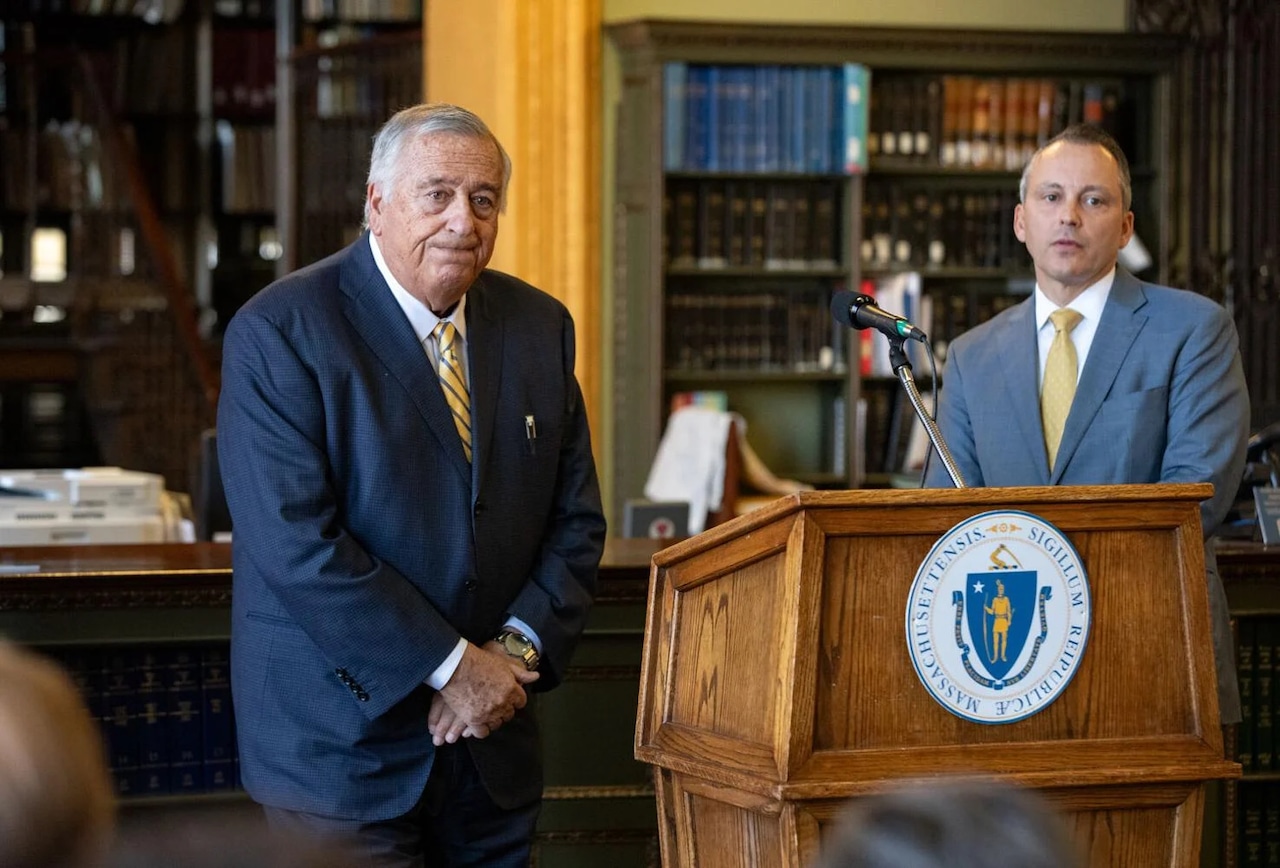
State House Democrats have thrown down their marker in this year’s budget debate, adding a new level of complexity to an ongoing financial and political drama marked by the skyrocketing costs of the state’s shelter crisis and a stormy revenue forecast.
First, the basics.
The $57.9 billion spending blueprint that the chamber’s top two leaders rolled out Wednesday follows the contours the $58.1 billion plan that Democratic Gov. Maura Healey sent to lawmakers in January.
Like Healey’s proposal, the Democrats’ budget proposal for the new fiscal year that starts July 1 takes many of the same approaches to shoring up the state’s bottom line, including the legalization of online Lottery sales, State House News Service reported.
It also mirrors Healey’s education priorities, including $24 million that’s set aside for MassReconnect, which provides free community college to some returning students.
But it also breaks with Healey’s proposal in several respects.
Notably, House Democrats lowballed Healey on funding for a new MBTA program that provides half-priced fares to low-income riders. Healey wants $45 million for the program. House Democrats allocated $20 million.
They also call for a different split on spending an anticipated $1.3 billion in revenue from the so-called “Millionaire’s Tax,” earmarking $695 million for schools and $605 million for transportation, a 53%-47% split, compared to the $750 million and $550 million eyed by Healey.
Now here’s where it gets complicated.
Those diversions among other measures, seem to set up yet another confrontation in a year that’s been marked by frequent family squabbles among Democrats who have stem-to-stern control over the State House.
And you can layer on top of that the fact that legislative negotiators are still trying to reach agreement on a supplemental funding bill that not only covers the state’s cash-strapped emergency shelter system, but also reauthorizes such popular pandemic-era programs as drinks-to-go.
That, too, will require an executive signature.
So, it seems logical to ask: What could possibly go wrong?
The short answer, according to one veteran observer? Just enough to make things difficult.
“The budget will get done, and it will be late, and probably in July,” Western Massachusetts political consultant Matt L. Barron told MassLive.
Where it will get sticky is in the debate over funding for the state’s emergency shelter system, which continues to see an influx of migrant families.
“The migrant thing is going to be hard,” Barron said. “People are reading the stories every week [about the rising cost] … it’s seeding resentment … After a while, it’s just going to boil over.”
Healey’s administration has pegged the annual cost of funding the system at more than $900 million a year for the next two years.
The House’s proposal sets aside $500 million and doesn’t tackle year two, according to State House News Service.
“We’re trying to fund [the system] ‘til the end of the year,” state House Speaker Ronald J. Mariano, D-3rd Norfolk, told reporters Wednesday after he left a closed-door caucus session with his fellow Democrats.
“And next year?” one journalist asked him.
“We’ll deal with it next year,” Mariano shot back.
The answer was glib, but the math behind it is not.
While the state broke a months-long tax collection skid in March, collections for the year still remain behind projections, according to recent state Department of Revenue data.
Earlier in the day on Wednesday, Mariano, joined by House Ways & Means Committee Chairperson Aaron Michlewitz, D-3rd Suffolk, said House budget-writers tried to balance the need for critical pending against the challenges prompted by those sagging tax revenues.
“The result of these issues is simple. This fiscal year is not going to be like the last few,” Mariano said. “And there will be an even greater demand for Fiscal Responsibility throughout this budget cycle.”
“However, despite the revenue challenges that we now face, it is still our responsibility to balance these challenges with the need to allocate funding where it is most needed,” Mariano added.
Michlewitz offered a similar sentiment, saying the spending plan “will allow the Commonwealth’s economy to continue to grow while remain competitive. And also recognizing the financial realities that we are confronted with currently.”
But it won’t pass itself.
That means Democratic bosses will have to wrangle votes — however they can — to get their bill into the inevitable House and Senate conference committee.
The surest method, according to Barron? Some good, old-fashioned quid pro quo. A “yes” vote on the budget could mean funding shakes loose for a favored project back home.
“As long as they can go back home with that press release,” in an election year, “they’ll do whatever leadership tells them to do,” Barron predicted.
The House is scheduled to start debate on its budget proposal on April 24.
It might not end up being the cruelest month. But it won’t lack for drama.





